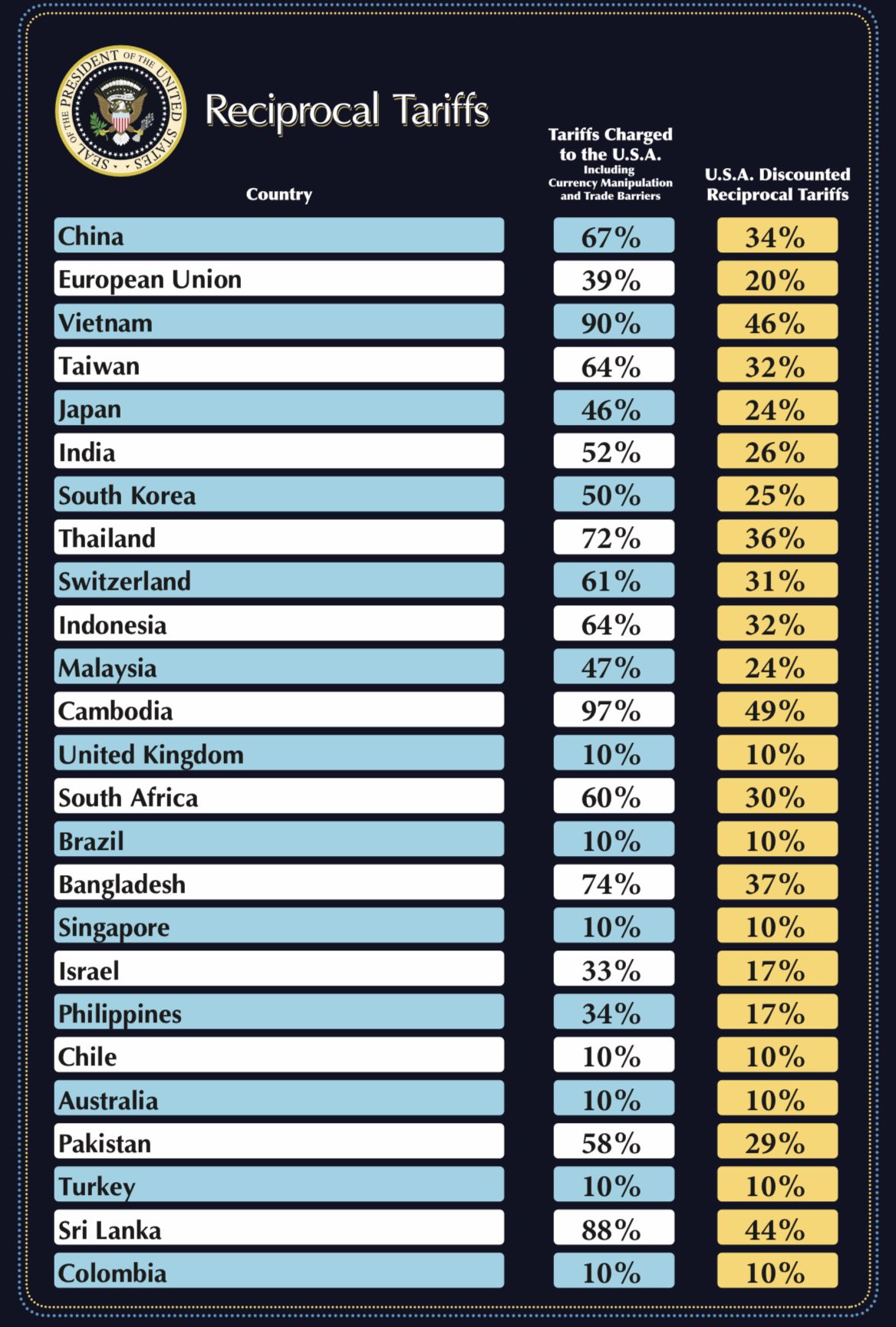In a significant policy shift, US President Donald Trump announced on Wednesday the imposition of substantial tariffs affecting nearly all US trading partners. These include a 34% tax on imports from China, 26% from India, and 20% from the European Union. These measures pose a threat to the broader global economic framework and may incite extensive trade wars.
In a Rose Garden announcement, President Trump stated that these elevated tariffs target several nations with significant trade surpluses with the United States. He also introduced a baseline import tax of 10% on all countries, citing what he described as an economic emergency.
Trump emphasized the goal of these tariffs is to enhance domestic manufacturing, using strong language about a global trade system that the US helped establish post-World War II. He claimed that other nations have "looted and plundered" the United States, necessitating decisive action.
Designating this event as “one of the most important days in American history,” Trump described it as the nation's “Declaration of Economic Independence.” With the motif “Make America Wealthy Again,” he conveyed that American citizens, previously side-lined, now have the opportunity to prosper.
This move represents a historic tax increase that might challenge the current global order, potentially impacting middle-class essentials such as housing, automobiles, and clothing, which may become more expensive. It could also disrupt alliances aimed at maintaining peace and economic stability.
President Trump insisted on the need for this action to generate hundreds of billions in new revenue for the US and restore fairness in global trade. He claimed, “Taxpayers have been exploited for more than 50 years, but that ends now.” Declaring a national economic emergency, Trump suggested that these tariffs would bring back factory jobs to the United States. However, this could result in an economic slowdown due to potential price hikes for consumers and businesses.
Fulfilling a major campaign promise, Trump utilized the 1977 International Emergency Powers Act to implement what he termed “reciprocal” tariffs, bypassing Congress. However, this bold move could threaten his voter base's mandate from the last election, particularly regarding efforts to combat inflation.





